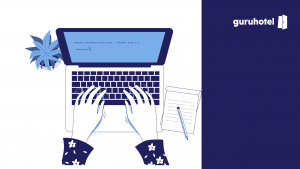Revenue management is one of the key pieces for the management of a successful and profitable hotel. It allows you to identify ways to get the most out of each market context.
Hotel revenue management helps predict consumer demand in order to optimize the sale of all inventory and maximize prices and profitability of other areas and services of the facilities. To offer customized products, at the right time and at a competitive price, sales and marketing teams must, therefore, handle the largest volume of reliable and updated information in real time.
How to increase the revenue of your hotel?
One of the most common questions of hotel owners is how to boost their sales.
Here is a list of tactics you can use to improve your hotel's revenue stream:
- Online reservations
Today, travelers enjoy the flexibility, convenience, and convenience of booking online. If your hotel is available in all media on the internet, you will improve reservations.
- Build a culture of income
It is important that all the members who operate your hotel are connected to a better culture, both in the planning of the rates and in the experience they provide to the guests.
- Sell other hotel products
Additional services are the most effective way to increase hotel sales, improve service quality, and elevate the hotel's image.
Offer your hotel guests the possibility to buy items such as soap, utensils, towels, etc .; especially if your hotel exudes personality.
- Take advantage of events and attractions
Local events and attractions are a great opportunity to create packages for guests to offer additional services such as transportation. The benefits affect both: guests will enjoy their stay more and your hotel will have more income.
What is revenue management?
Revenue management uses the data-driven model, the marketing intelligence and the management model. In this way, it proactively tries to use the information to improve the profitability of the hotel. And it does this by setting the best prices for certain dates, channels and types of products, taking into consideration numerous parameters such as:
- Production capacity available
- When the product or service perishes
- Fixed costs involved and variable costs
- Demand by date and typology
- Client typology
- Special events
- Form of purchase and consumption
- Competence
Revenue management needs tools based on internal and external research. The most important are segmentation, historical demands and purchasing patterns, demand forecasts, available stock inventories, contingency systems in cases of overbooking, and IT tools.








